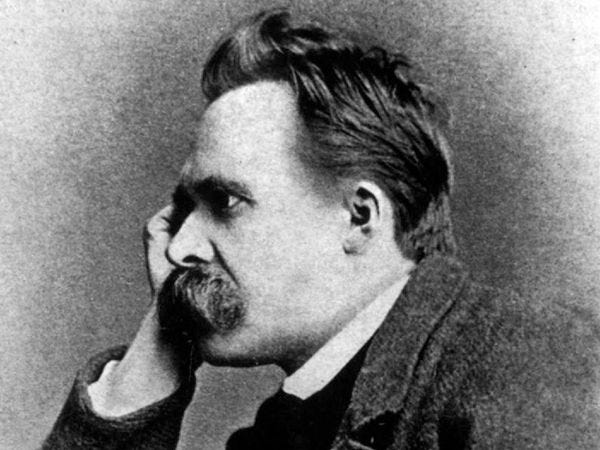“True Power comes from self-mastery”
Friedrich Nietzsche’s Will to Power is one of the most misunderstood concepts in philosophy. Too often, it’s mistaken for brute dominance, a thirst for control it all, a Machiavellian act. But Nietzsche’s insight runs deeper, providing a powerful leadership framework.
In its essence, Will to Power is not about control over others or the mere idea of authority; It is about the innate human drive to expand, to create, to push beyond limits. It represents the force behind ambition, innovation and self-mastery.
The Leader’s Will to Power: Beyond the Myths
Many leadership models focus on serving others or inspiring teams. While truthful, these frameworks often ignore a very important and uncomfortable truth: Most people are driven by power, growth, and the pursuit of greater influence. The question is not whether this drive exists, or if it is good or bad, but how to harness it effectively to drive excellence.
Nietzsche’s will to power challenges us to move beyond the conventional, break with “herd” thinking. Leadership is not about maintaining the status quo, it is about bringing new worlds into existence. It is about transforming obstacles into stepping stones and resisting the pull of mediocrity.
For leadership this means cultivating a bold, expansive mindset, one that channels power not into coercion, but into mastery, vision, and execution.
Leading with ‘Will to Power’: Executive Playbook
How to apply this concept pragmatically in your leadership?
1. Power is Responsibility, First, Master Yourself
Great leadership begins strong self-awareness to achieve internal dominance, to gain power over your own weaknesses, emotions, and limitations. True strength comes not from controlling others, but from overcoming oneself. A human who is stagnant is already losing.
Action: Identify one area where you need to level up, whether in decisiveness, strategic foresight, or mental resilience. Attack it relentlessly.
2. Set a Vision Worth Fighting For
Nietzsche admired individuals who redefined the possible. Leaders who settle for minor optimizations instead of radical transformation are wasting potential.
Action: Craft a vision that stretches yourself first and then your team beyond several levels of comfort. Not a 5% improvement, think of a 10x change. The Will to Power is about expansion, not maintenance.
3. Demand Growth, Not Compliance
People do not follow leaders out of obligation; they follow those who challenge them to become more, to be more, to achieve more. The best leaders ignite ambition and demand transformation. Do not settle for less
Action: Stop shielding your team from difficulty. Set higher standards, and frame challenges as opportunities for their own mastery. Comfort breeds complacency; pressure creates strength.
4. Power Without Ethics is Weakness
Nietzsche was clear: Not all expressions of power are equal. Petty dominance, politics, and manipulation are low forms of power. The highest power is that which creates lasting impact through strategy, innovation, and resilience; the ones that transforms for the better.
Action: Measure success not by titles you seek or promotions you desire, but by the value you create. A true executive doesn’t hoard influence, they expand it by empowering others to be exceptional. Measure success in those terms and you will be unstoppable.
5. Lead Like an Architect of the Future
Nietzsche spoke of the Übermensch, the person who transcends conventional limits and reinvents the rules of the game. Executives who thrive in uncertainty don’t just react to market shifts, they bend reality to their vision.
Action: Ask yourself: Am I playing the game, or redefining it? The most powerful leaders don’t adapt to change, they force change. Measure your power in your ability to redefine rules of the game you are in.
The Übermensch
The Leadership Mandate is to Transcend Limits
Nietzsche’s Übermensch is not some abstract ideal—it’s a call to action. It is the embodiment of what each of us could become if we broke free from outdated beliefs, limiting narratives, and the inertia of conventional thinking.
For Nietzsche, the Übermensch is the individual who fully owns their existence, who refuses to be confined by external validation, dogmas, or the fear of not being accepted or standing alone. This is the leader who does not passively accept circumstances but shapes them. The Übermensch is not just resilient—they are radically self-determined, continuously refining their character, vision, and impact.
To lead at this level, one must develop an unyielding ability to affirm life—to say ‘yes’ to every challenge, setback, and uncertainty, not as obstacles but as raw material for greatness. This is the essence of leadership: the ability to transform adversity into fuel, self-doubt into mastery, and ambition into tangible outcomes.
Nietzsche saw modernity slipping into complacency—a crisis of small thinking and safety-seeking. His response? A demand for those willing to transcend mediocrity and create their own path.
Nietzsche’s Übermensch is a call for personal self-discovery and self-overcoming.
The Courage to Lead Differently
Nietzsche’s challenge to leaders is clear: Are you reacting to the world as it is, or are you reshaping it? Are you playing within the limits set by others, or are you pushing past them to redefine what’s possible?
Don’t settle for mediocrity. Don’t wait for permission. Don’t seek comfort.
True leadership is about relentless expansion, unshakable resilience, and the will to shape the world rather than be shaped by it.
Embrace that challenge and lead accordingly.
The Übermensch does not wait for permission. Neither should you.
P.S. Before I go, here you have “The Treat,” where I share some of the music that made me company while writing … Enjoy as you bid farewell to this post
“Lead yourself, Learn to live. Lead others, Learn to Build.”
If you enjoyed reading this post consider subscribing to the newsletter for free, joining the community and sharing your thoughts.






